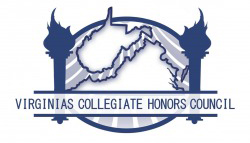Why has the Democratic Republic of the Congo outsourced its responsibility to educate its people? A study on how the inefficiency of the civil service hinders the capacity of the state
Location
Taylor 405, Madison Union, JMU
Start Date
4-6-2019 9:00 AM
Description
The Congolese State has been struggling to achieve most of its Millennium Development Goals (MDGs) and failed to control many areas of public life. This has led to a disengagement of the state which has yielded its responsibility to educate its own people. We have seen several actors engaging in what can be coined as a “negotiated” or “hybrid” system. The first part of this research will try to uncover the failures of the civil service and its responsibility in the hindrance of the state capacity. Given the extractive and predatory nature of the Congolese bureaucracy uncovered in the literature on the topic, we will focus on how it has continuously contributed to the state’s inability to control its education system. The second part will deliberate of different approaches to solve this issue, namely their advantages and shortcomings, and assess the most feasible solution in the context of the DRC.
Presentation Type
Poster
Why has the Democratic Republic of the Congo outsourced its responsibility to educate its people? A study on how the inefficiency of the civil service hinders the capacity of the state
Taylor 405, Madison Union, JMU
The Congolese State has been struggling to achieve most of its Millennium Development Goals (MDGs) and failed to control many areas of public life. This has led to a disengagement of the state which has yielded its responsibility to educate its own people. We have seen several actors engaging in what can be coined as a “negotiated” or “hybrid” system. The first part of this research will try to uncover the failures of the civil service and its responsibility in the hindrance of the state capacity. Given the extractive and predatory nature of the Congolese bureaucracy uncovered in the literature on the topic, we will focus on how it has continuously contributed to the state’s inability to control its education system. The second part will deliberate of different approaches to solve this issue, namely their advantages and shortcomings, and assess the most feasible solution in the context of the DRC.


